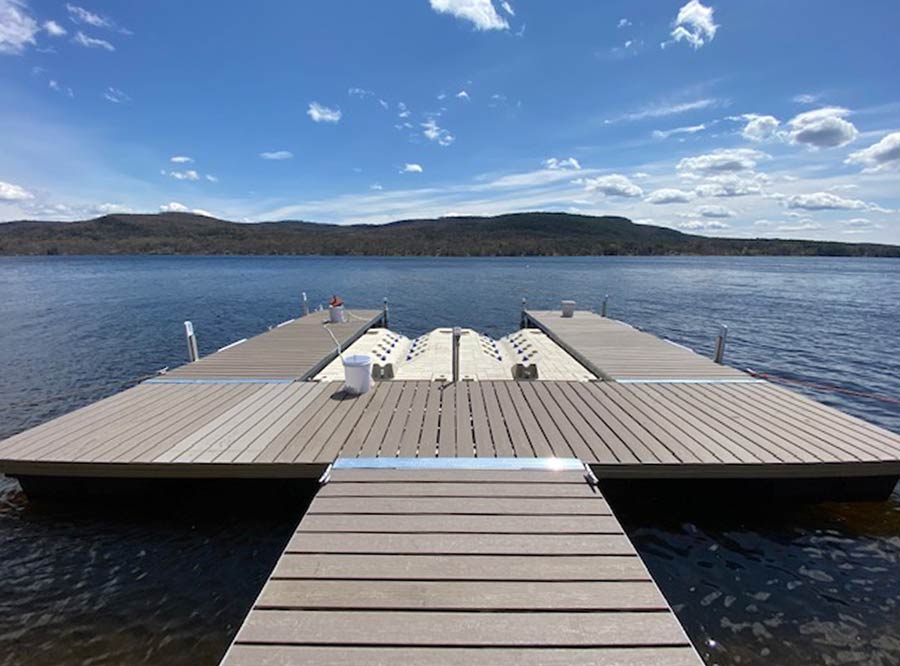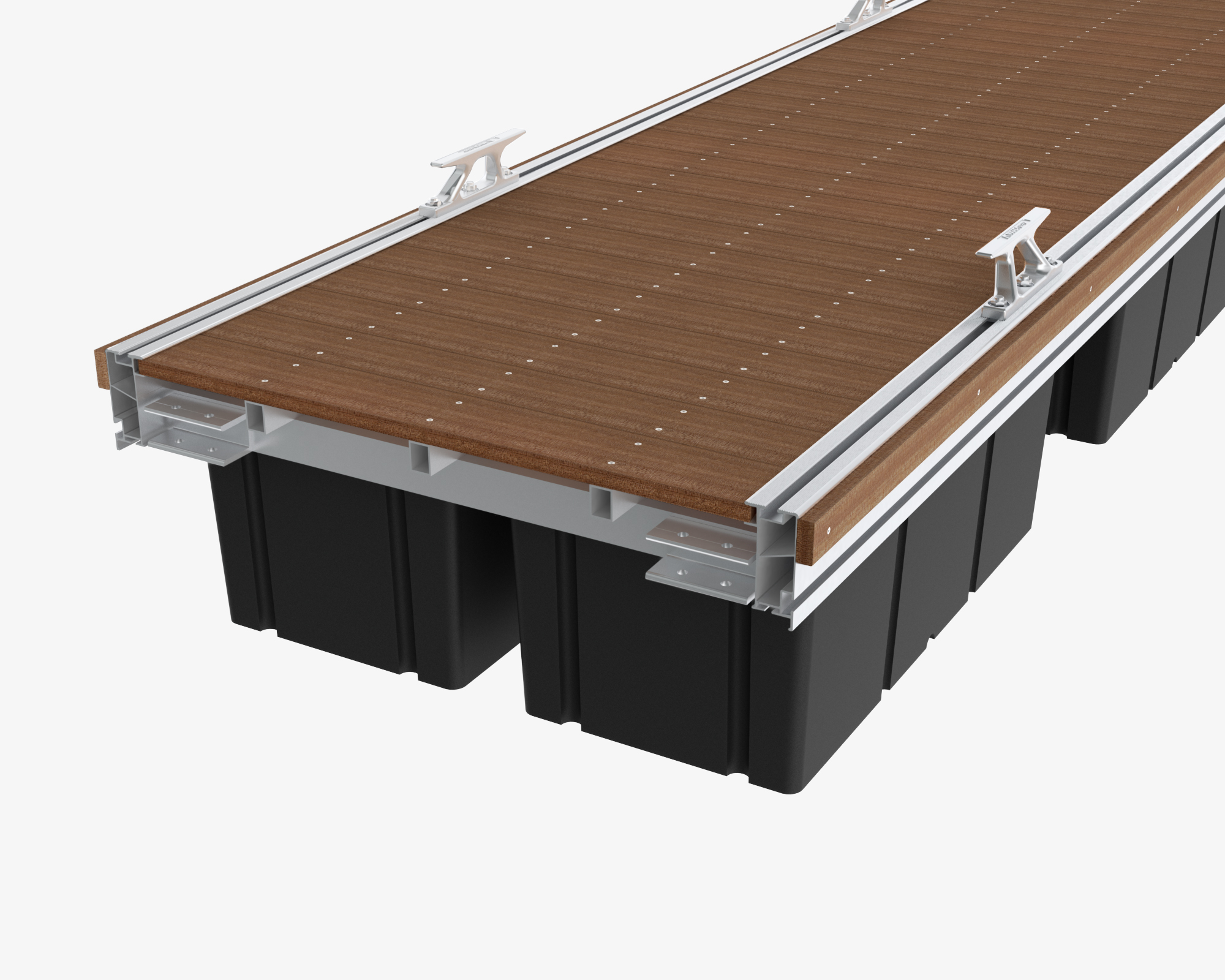Floating Dock Services That Transform Your Waterfront into an Unwinding Oasis
Floating Dock Services That Transform Your Waterfront into an Unwinding Oasis
Blog Article
The Ultimate Overview to Choosing the Best Floating Docks
Choosing the ideal floating dock needs a comprehensive understanding of numerous aspects that influence both efficiency and durability. Factors such as dock kinds, materials, and essential functions significantly influence your decision-making procedure.
Understanding Floating Dock Types
When picking a drifting dock, it is important to understand the various types offered, as each offers distinct purposes and applications. Floating docks mostly come under three classifications: modular, fixed, and pontoon docks.
Modular docks are composed of individual sections that can be quickly constructed or reconfigured, making them optimal for transforming water degrees and varied usages, such as commercial operations or leisure activities. Their versatility permits modification based upon specific requirements.

Pontoon docks are identified by their resilient framework, often composed of multiple pontoons that provide security and assistance. They are especially appropriate for larger vessels and are typically used in marinas or for beachfront residential properties. Comprehending these kinds aids in picking the most ideal floating dock to fulfill particular demands, making sure optimal performance and safety.
Secret Materials for Longevity
Selecting the appropriate materials for floating docks dramatically impacts their longevity and durability. One of the most common materials consist of timber, plastic, steel, and composite products, each offering distinct advantages and restrictions.
Timber, often favored for its aesthetic charm, calls for regular maintenance to endure wetness and degeneration. Pressure-treated lumber can boost resistance to rot, but it may still be susceptible to bugs and weathering.

Plastic docks, made of high-density polyethylene (HDPE), are resistant to corrosion, UV radiation, and effect, making them a prominent choice for seaside atmospheres. Their lightweight nature likewise promotes very easy installment and relocation.
Metal docks, normally built from aluminum or galvanized steel, give phenomenal stamina and sturdiness. They are resistant to deterioration, particularly when treated, yet may need extra insulation to prevent warmth build-up in warm climates.
Composite products, integrating timber fibers and plastics, provide the benefits of both wood and plastic, resisting wetness and fading while requiring marginal maintenance. - floating dock services
Ultimately, the selection of materials need to line up with ecological problems, planned use, and upkeep preferences to make certain the floating dock remains practical and aesthetically pleasing gradually.
Vital Attributes to Think About
While the choice of products is essential, taking into consideration necessary features for floating docks is similarly vital to make sure optimal efficiency and user contentment. One essential attribute to evaluate is the dock's buoyancy ability, which determines just how much weight it can support without submerging. floating dock builder. This is essential for fitting watercrafts, individual boat, and even recreational tasks
In addition, portability is a considerable factor to consider. Relying on your needs, you may want a dock that is easy to transport and disassemble, especially if you prepare to transfer it seasonally. Security is an additional crucial feature; a properly designed floating dock needs to minimize movement triggered by wind and water currents, providing a protected platform for users.
Safety functions, such as non-slip surfaces and rounded edges, are also crucial to avoid accidents, particularly in wet problems. In addition, take into consideration the availability of devices, such as bumpers, ladders, and cleats, which can boost the performance of your dock.
Setup and Upkeep Tips
Establishing and keeping a floating dock calls for cautious planning and focus to detail to guarantee its longevity and optimum efficiency. Begin by selecting an appropriate area that lessens exposure to solid currents and waves, which can trigger wear and tear. Make certain that the water depth is sufficient for the dock's elevation and that it is secured securely to protect against motion.
Throughout setup, follow the maker's guidelines very closely, as incorrect assembly can endanger stability. Usage top notch materials immune to corrosion, such as light go to website weight aluminum or treated timber, to improve toughness. Frequently inspect all elements, including floats, ports, and anchoring systems, for indications of damage or wear.
If your dock uses flotation devices, ensure they stay undamaged and cost-free from punctures. By adhering to these installation and maintenance suggestions, you can take pleasure in a dependable and functional floating dock for years to come.
Budgeting for Your Dock
Budgeting for your dock is an important action that can dramatically influence your total complete satisfaction and investment in a waterside home. Developing a clear spending plan aids you browse the numerous options readily available and guarantees you make notified choices that straighten with your monetary abilities.
Begin by identifying the dimension and style of the dock you call for, as these variables will considerably influence More Info the cost. Floating docks can differ substantially in price, depending on products, buoyancy, and functions like ramps and accessories. Research study various suppliers and distributors to contrast costs and understand the marketplace value.
Along with preliminary costs, take into consideration continuous expenses such as upkeep, insurance, and possible repair work. Allot funds for these persisting prices to prevent surprises down the line. It's additionally prudent to spending plan for any type of needed authorizations or evaluations, which might be needed by neighborhood regulations.
Last but not least, bear in mind the prospective roi. A well-planned dock can boost your residential property's value and charm, giving a positive monetary influence in the long term. By budgeting successfully, you can ensure that your dock satisfies your demands without compromising your monetary security.
Final Thought
To conclude, picking the ideal floating dock requires a complete analysis of various factors, including dock types, materials, vital attributes, and installment procedures. Focusing on resilience and conformity with local guidelines inevitably boosts functionality and residential property worth. Careful factor to consider of financial restraints will certainly better ensure a sound investment. By adhering to these why not try these out standards, people can make educated decisions that promote long-term satisfaction and functionality in marine settings.

While the option of products is important, taking into consideration crucial functions for floating docks is just as important to make sure optimum efficiency and user complete satisfaction.Establishing up and keeping a drifting dock requires careful planning and focus to detail to guarantee its long life and optimal performance. Floating docks can vary substantially in rate, depending on products, buoyancy, and attributes like ramps and accessories.In verdict, picking the perfect floating dock necessitates an extensive analysis of numerous variables, including dock kinds, products, essential features, and installation processes.
Report this page